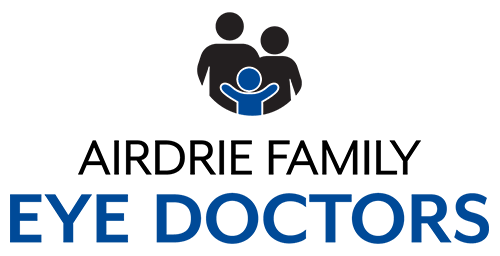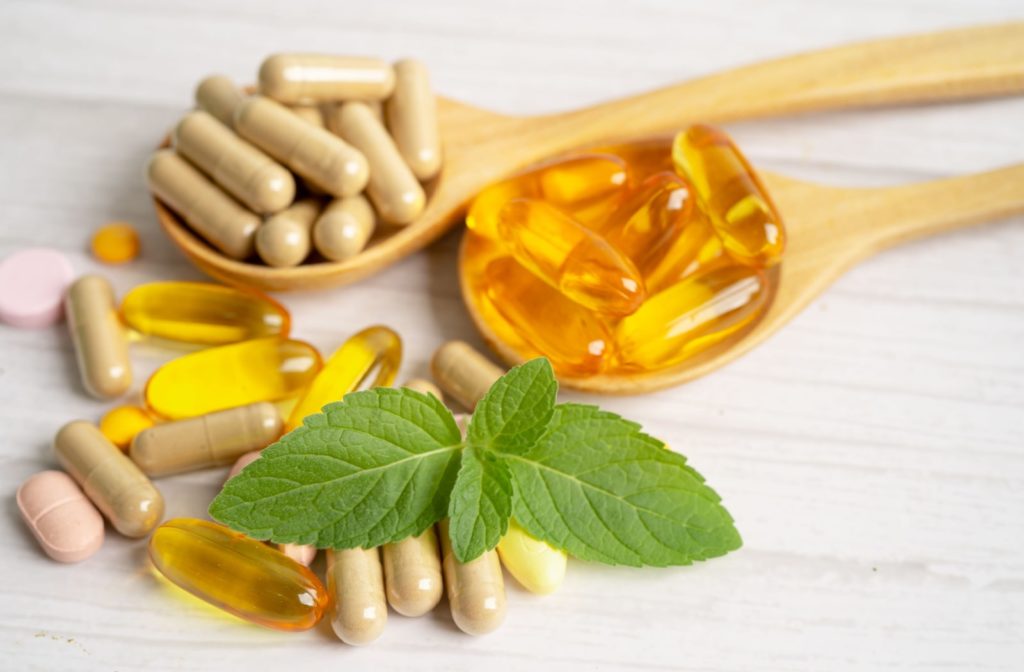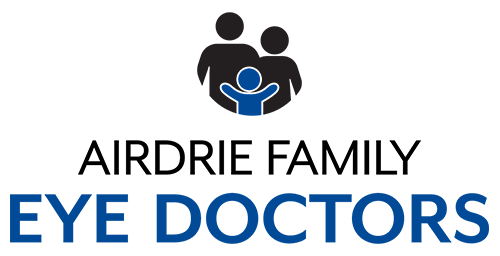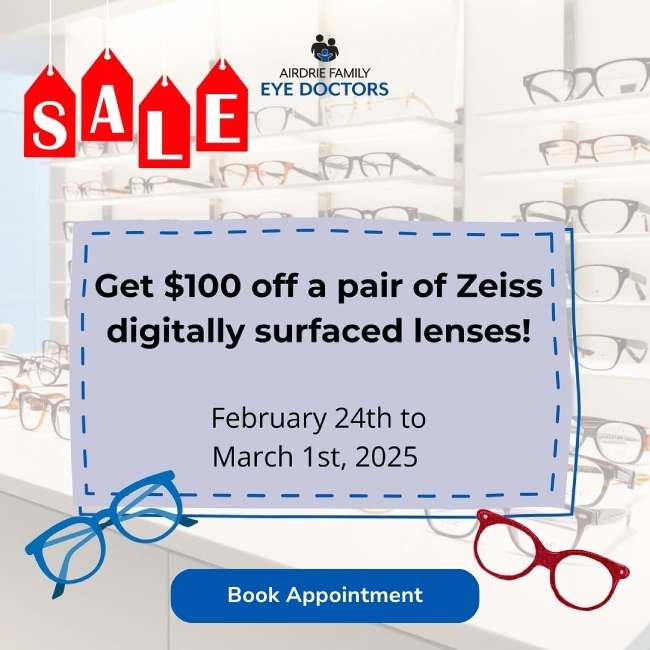Vitamins & Supplements for Dry Eyes
If you’re among the 30% of Canadians suffering from dry eye disease, you may be wondering if there’s more you can do to help ease symptoms and care for your eyes.
Many factors can contribute to dry eye, including the foods you eat, your environment, and digital eye strain. The good news is, adding vitamins and minerals such as omega-3s and Vitamins A, D, and B12 can help protect against dry eye disease and maintain your overall health.
What is Dry Eye?
Dry eye disease affects the tear film on your eyes, which is made of 3 layers: fatty oils, aqueous fluid, and mucus. If any layer is damaged, you may experience dry eye symptoms.
Causes & Risk Factors
Dry eye can be caused by many different external factors including environment or lifestyle or may occur as a natural result of aging depending on your risk level.
The following may put you at a higher risk of developing dry eye:
- Being over 50
- Being a woman
- Wearing contacts
- Having a history of refractive surgery
Vitamin deficiencies are also a factor. The nutrients that help your body function well every day play a role in the health of your tear film, and in turn help keep your eyes moisturized through healthy tear production.
If you’re suffering from red, irritated, or scratchy eyes, it’s worth looking into your vitamin intake to ensure you’re getting the proper nutrients.
Consult your primary care physician before adding any vitamins or supplements to your diet.
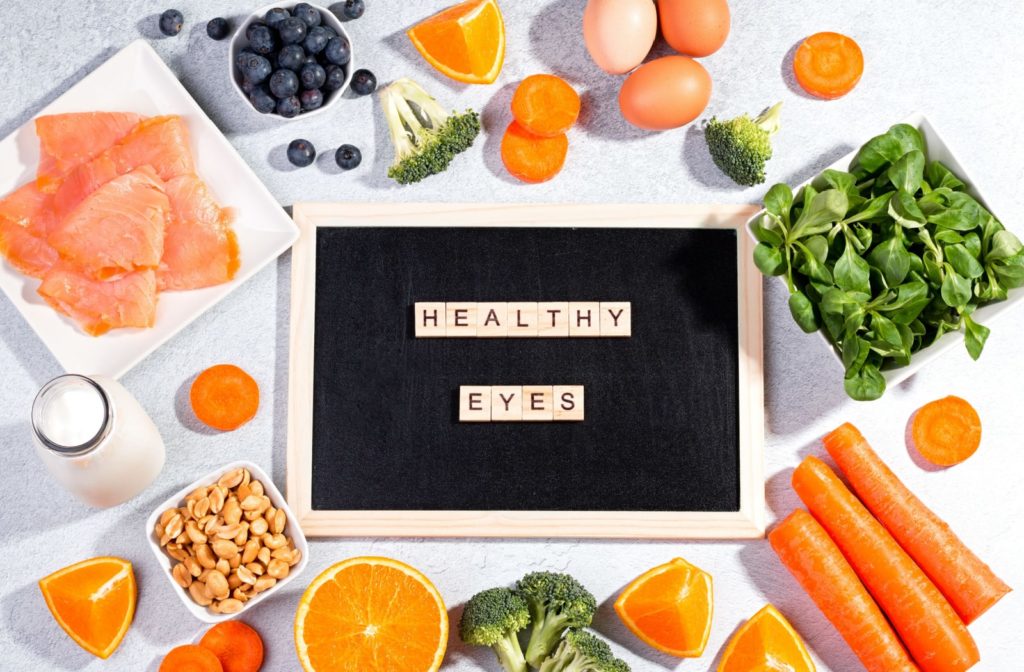
What Deficiencies Cause Dry Eyes?
Omega-3
Recent studies have shown that omega-3 may play a role in the prevention of dry eye as well as helping treat it. Omega-3 reduces inflammation, which may help ease symptoms like redness and irritation of the eyelids.
Omega-3 reduces the rate of tear evaporation, which is a common cause of dry eye. Adding sources of omega-3 like mackerel, albacore tuna, sardines, or salmon is a great way to ensure your body gets its required nutrients.
Omega-3 is also available as a supplement, but your body may absorb it more effectively by eating foods that contain it.
Vitamin A
An essential nutrient in your diet, vitamin A is necessary for lubricating the eyes and maintaining healthy tear production.
You may have heard the myth that carrots help you see in the dark, and this is somewhat true. Carrots and other orange vegetables contain high amounts of vitamin A, which is known to improve the smoothness of the tear film.
It’s worth noting that Vitamin A deficiency is relatively rare in Western cultures, and vitamin A toxicity can result from consuming an excessive amount.
Be sure to consult your primary care physician before adding a vitamin A supplement to your diet.
Vitamin D
Our body naturally produces vitamin D when exposed to the sun, and although it can be found in foods such as fatty fish and fortified dairy products, it’s difficult to consume enough vitamin D through diet alone.
Studies have shown that vitamin D may improve tear quality, dry eye symptoms, and increase the effectiveness of eye drops.
During the winter months when we are not exposed to the sun as often, vitamin D deficiency can be very common.
Vitamin B12
Vitamin B12 is needed for our bodies to function well, and it may help repair the corneal nerve layer in our eyes. Caring for the corneal nerve layer can help alleviate the burning sensation associated with dry eye.
Promising research has shown that vitamin B12 supplements could help with severe dry eye, with early results indicating dramatic improvement in symptoms and pain levels.
B12 is only found in animal foods, so people with predominantly plant-based diets have to supplement their diet with additional B12.
How To Restore Moisture In Your Eyes
If you’re suffering from dry eye symptoms, there are a variety of things you can do to help restore moisture in your eyes.
Changing Your Diet
Maintaining a balanced diet full of vitamins and minerals can help ensure your eyes have the nutrients they need to function well. Eating foods rich in vitamins A, D, and B12, as well as omega-3, can help maintain overall health and contribute to healthy eyes.
Checking in with your primary care physician is a crucial step in ensuring you’re getting the correct amount of nutrients in your diet.
Artificial Tears
Non-medicated eye drops meant to simulate tears can be a great resource for providing immediate relief of dry eye symptoms. They are available over-the-counter and easily accessible if you’re suffering from dry eye discomfort, but don’t provide a long-term solution.
Medicated Eye Drops
Medicated eye drops are similar to artificial tears in that they offer instant relief. The difference here is that medicated eye drops are designed to stimulate your body’s natural tear production system and help increase your eye’s natural tear production.
Your optometrist can provide a prescription for medicated eye drops.
Eyelid Wipes
Practicing proper eye hygiene is important not just for the skin around your eyes, but for the eyes themselves. Dry eye can develop as a result of blepharitis, which is caused by a build-up of bacteria on the upper eyelid and lash line.
Eyelid wipes can help maintain clean eyes and help prevent dry eye flare-ups.
Other Dry Eye Treatments
Environmental factors like dry, cold air or smoke can also contribute to the development of dry eye symptoms. Adding a humidifier to your home, drinking plenty of water, and avoiding smoky areas can help prevent and treat dry eye.
While dry eye disease is common, there is no need to suffer from the symptoms. Your optometrist can evaluate your needs and find a treatment plan that works for you. Airdrie Family Eye Doctors offers solutions such as:
- Scleral lenses
- Artificial tears
- Prescription eye drops
- Warm compress masks
- Eyelid cleansers or wipes
Dry Eye Treatment at Airdrie Family Eye Doctors
A combination of medical treatment and lifestyle changes to ensure your eyes are well cared for can make all the difference in irritated, uncomfortable eyes. Book an appointment with Airdrie Family Eye Doctors to learn more about treatment options today.
